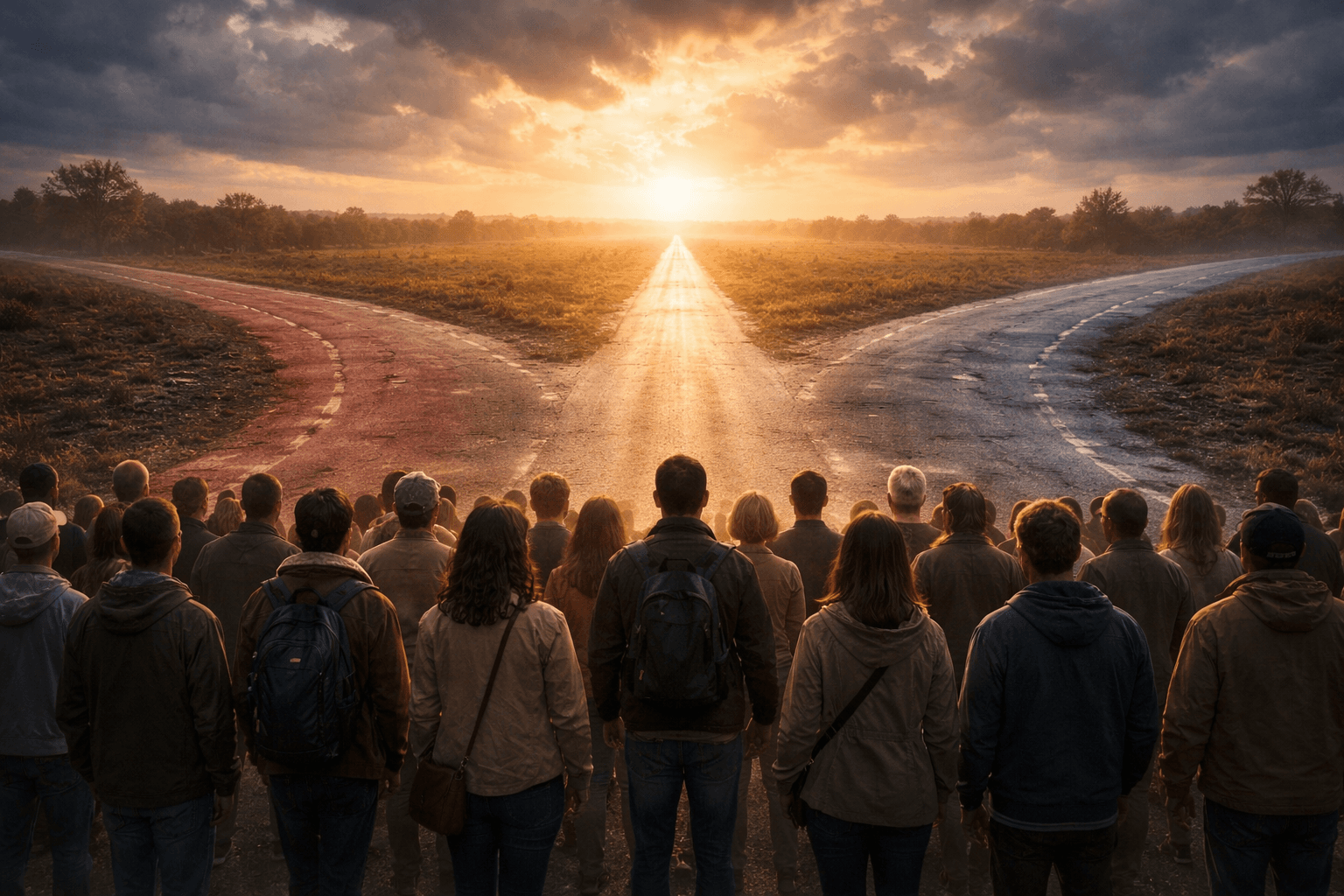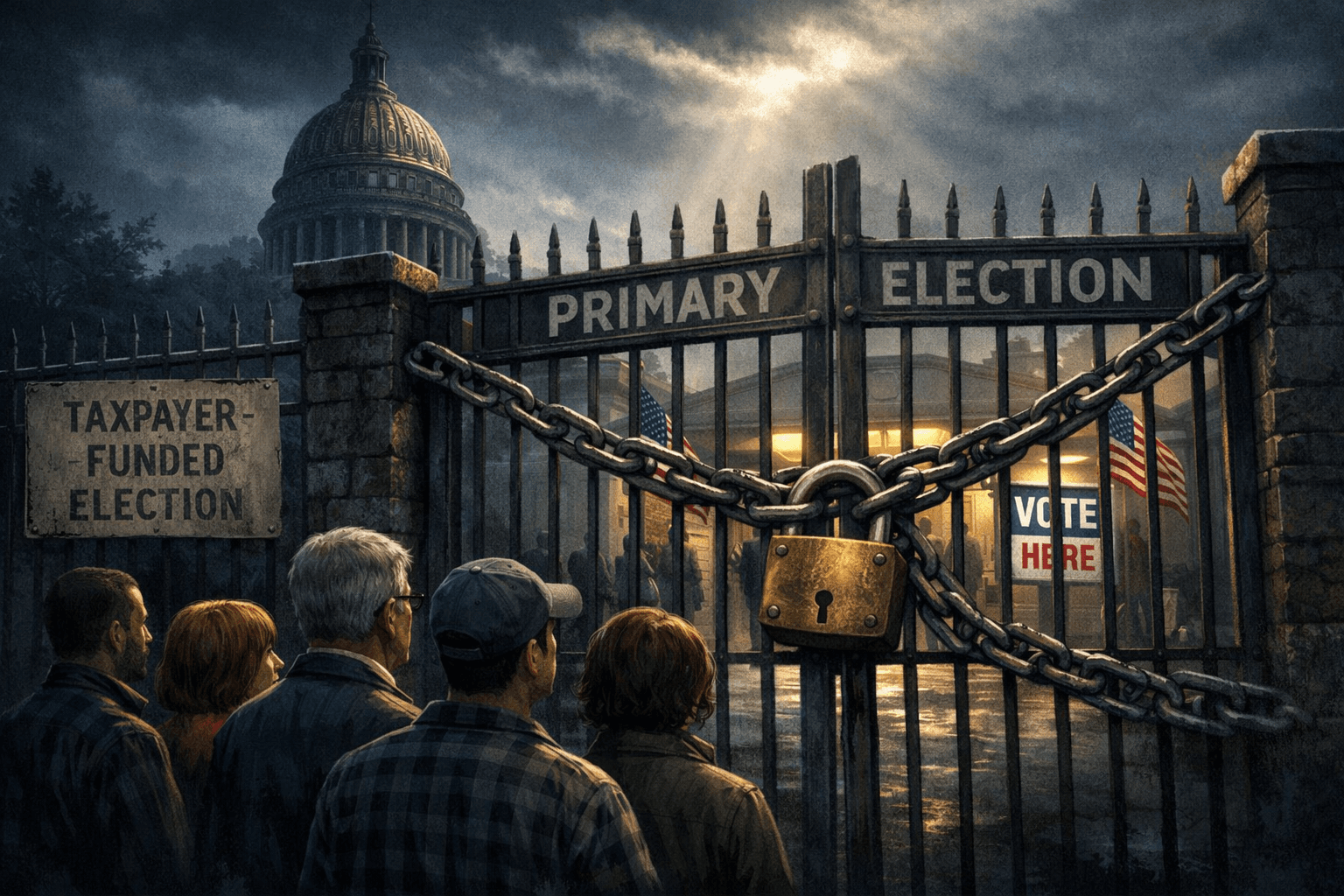Despite Candidates Needing Independents, US Elections Have Failed These Voters

Editor's Note: This op-ed originally published in The Fulcrum and has been republished on IVN with permission from the publisher. Photo by Katelyn Perry on Unsplash+.
With the race to Election Day entering the homestretch, the Harris and Trump campaigns are in a full out sprint to reach independent voters, knowing full well that independents have been the deciding vote in every presidential contest since the Obama era. And like clockwork every election season, debates are arising about who independent voters are, whether they matter and even whether they actually exist at all.
Lost, perhaps intentionally, in these debates is one undebatable truth: Our electoral system treats the millions of Americans registered as independent voters as second-class citizens by law.
That’s perhaps most well known in our system of primary elections. In 30 states, the government registers voters by party affiliation. The purpose of which is not to ensure election integrity, but to ensure that the government itself can properly segregate voters and advantage some over others. Fifteen states and the District of Columbia bar registered independent voters from participating in primary elections, while 25 more restrict primary voting in certain elections like presidential contests.
Just this year, 27 million Americans who registered as independent were shut out of the presidential primaries. And despite the tired argument that primaries are private affairs, it’s the government that pays for and runs these elections and it’s the government that enforces the Democratic and Republican parties’ desire to shut independent voters out.
That’s hardly the extent to which independent voters are discriminated against by law. Want to support a candidate? Most states bar independent voters not only from signing party candidate petitions for the ballot but even from serving as witnesses to those signatures. These are not internal party rules but state election law, enforced by state-administered election boards.
Want to work to ensure our elections are safe and fair? Open Primaries’ review of state election laws found that a majority of states bar independent voters from serving as poll workers, poll watchers, election judges and even serving on election boards. America’s entire system of election administration shuts out independent voters.
Additional prohibitions are too numerous to list. Arizona, for example, automatically mails ballots to party voters but requires independent voters to preemptively request a ballot. States without party registration are not spared. Tennessee law now requires polling locations to display signage threatening independents with criminal prosecution if they vote in primaries, even though they have open primaries!
The effect is becoming too large to ignore. Recent Gallup polling found that 51 percent of Americans identify as independent, more than Democrats and Republicans combined. That number is an important symbol of just how many Americans are feeling disaffected from the two major parties. But it also helps obscure the equally large number of Americans who are registering as independent and being subjected to government-administered discrimination as a result. Independents are now the largest group of registered voters in 10 states, including Arizona, Colorado, Nevada and North Carolina. And as our country divides into a sea of red and blue states, it’s independent voters who outnumber one of the two major parties voters as the second largest group of voters in almost every other state.
The irony, of course, is that many of the largest constituencies of independent voters are the same constituencies that the Republican and Democratic parties alike claim to champion. More than half (52 percent) of Latinos are independent. So are nearly half of our military veterans. And today over half of millennials and Gen Z voters, having long surpassed baby boomers as the largest group of voters by age, are independent voters.
Just join a party, some say. Imagine the outrage if Republican voters were asked to register as Democrats or vice versa. No American should be forced by their government into a political affiliation whose values they don't share. And no democratic government has the right to ask their citizens to forfeit their rights for refusing such a false choice.
Independent voters are now the fastest growing group of voters in America today. Everyone seems to have an opinion about what that means for the 2024 election. But what it means to millions of independent Americans is simple: You’re a second-class citizen.






